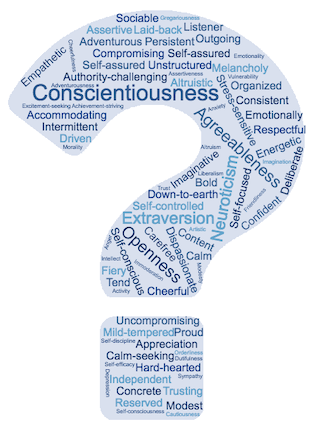Paranoid Personality Disorder Test
A paranoid personality disorder is classified as a mental illness that affects an individual’s perception of reality. Moreover, in some cases, the person will always be on the lookout for mistakes and errors in judgment from others. This can lead to many problems such as social anxiety, depression, and low self-esteem. There is a paranoid personality disorder test to know whether you are having one or not. The following article explores this topic in more detail.
Contents
What is Paranoid Personality Disorder?

This is a personality disorder that makes you have irrational paranoia about people around you. This paranoia may be extreme and lead to anger, depression, or even violence if not treated right away.
Symptoms
If you feel like everyone is out to get you or has bad intentions, then it’s time to consider that this could be a symptom. Furthermore, other symptoms include; always thinking things are someone else’s fault and blaming them for everything, having trouble trusting anyone and jumping to conclusions quickly about people, and always thinking you’re being judged or talked about.
Causes
People with paranoid personality disorder have a lot of stress in their lives, which may lead to irrational fears and thoughts. This disorder is also linked to depression as well as alcohol/drug abuse, so it’s best that these are treated as well.
Treatment
There are many different types of treatment that can help with a paranoid personality disorder. These usually include things like therapy, medication, and hospitalization if necessary to keep you safe or worry-free! So don’t be afraid to seek out any support you need for this disorder. Treatment will help you manage your emotions better and lower stress levels, which will then improve this disorder.
What Can You Do to Manage Paranoid Personality Disorder?
There are also many things you can do at home to manage this disorder. Taking care of your body is first and foremost, so eat healthy foods and exercise! You may need medication or therapy as well if symptoms don’t improve with other treatments. It’s important that you find a good support system too because it will help lower stress levels even more.
However, sometimes, a paranoid personality disorder can make it hard to be around others. If you feel like this is the case for you, then try your best to seek out support and treatment right away! Be open about how you’re feeling with close friends or family who will love and support you along the way too.
Sample Questions In a Paranoid Personality Disorder Test

Do you ever think people have a bad motive?
- Never
- Rarely
- Sometimes
- Often
- Very Often
Do you think people are trying to trick you even if they don’t have any evidence?
- Never
- Rarely
- Sometimes
- Often
- Very Often
Do you feel suspicious of people who have acted loyally towards you?
- Never
- Rarely
- Sometimes
- Often
- Very Often
Do you get scared when you tell people things?
- Never
- Rarely
- Sometimes
- Often
- Very Often
Do you think that people who are not threatening you are insulting you?
- Never
- Rarely
- Sometimes
- Often
- Very Often
Do you get mad when someone insults you?
- Never
- Rarely
- Sometimes
- Often
- Very Often
Do you hold onto something for a long time?
- Never
- Rarely
- Sometimes
- Often
- Very Often
Are you worried that your partner is not being faithful?
- Never
- Rarely
- Sometimes
- Often
- Very Often
I sometimes see hidden insults or threats in things that other people say.
- Not at all
- Just a little
- Somewhat
- Quite a lot
- All the time
I have recurring suspicions about my partner’s fidelity without any proof.
- Not at all
- Just a little
- Somewhat
- Quite a lot
- All the time
I think that other people are doing bad things to me. I don’t have any reasons, but I still think they are.
- Not at all
- Just a little
- Somewhat
- Quite a lot
- All the time
I am worried that if I tell someone something, they might use it to hurt me.
- Not at all
- Just a little
- Somewhat
- Quite a lot
- All the time
I have a bad feeling about people that I am not nice to.
- Not at all
- Just a little
- Somewhat
- Quite a lot
- All the time
I am worried about my friends. They might not be good people. I don’t trust them.
- Not at all
- Just a little
- Somewhat
- Quite a lot
- All the time
How Accurate Is It?
This quiz is not a diagnostic tool. Only licensed healthcare professionals can diagnose mental health disorders. People frequently avoid getting help out of fear that their problems aren’t real or bad enough to require expert assistance.
Scoring Of PPD Quiz
If you answered “Never” to most of the questions, then it’s unlikely that you have a paranoid personality disorder. If you gave mostly “Sometimes” or “Often” answers, then your risk for this disorder is higher and your symptoms may be more pronounced than they are now. You might want to speak with a mental health professional about these symptoms. If you gave mostly “Very Often” answers, then your symptoms are most likely very intense and may require treatment to change them or get rid of them permanently.
- Never (0 points)
- Rarely (½ point)
- Sometimes (~¾ points)
- Often (⅝ points)
- Very often (>⅜ points)
Results and Predictions of Paranoid Personality Disorder Test
Having trouble? Anxious about your test result, or wondering if you might have this disorder? Take the free Paranoid Personality Disorder Test below to find out how severe your symptoms are. Do not write numbers or bullet points.
A paranoid personality disorder is characterized by a long-standing pattern of suspicion and mistrust towards others, which often results in a persistent belief that one is being cheated, persecuted, or treated poorly by others. This pattern of behavior can lead to feeling constantly on guard and defensive as well as causing issues with interpersonal relationships.
Conclusion
If you have a hard time trusting others, experience extreme jealousy, and are constantly feeling suspicious or fearful that people want to harm you in some way then there may be a good chance that you suffer from Paranoid Personality Disorder. The symptoms of this disorder can vary greatly from person to person so it is important to see your doctor if the possibility has been raised for you.
Many people with this condition tend to be very argumentative and defensive as a way of protecting themselves from possible threats. However, they will often make up for their lack of trust in others by becoming overly suspicious or paranoid about those around them. Individuals may also have delusional thoughts that they are being threatened or harmed by someone else even when it is clear that no such harm was meant.
In order to help those with Paranoid Personality Disorder, a therapist will often try to work on how they can improve their interpersonal relationships as well as teach them certain coping techniques for stress and anxiety. In some cases, medication may also be used in conjunction with therapy sessions if the individual requires it.
If you are looking for affordable Online Counseling MantraCare can help: Book a trial therapy session


